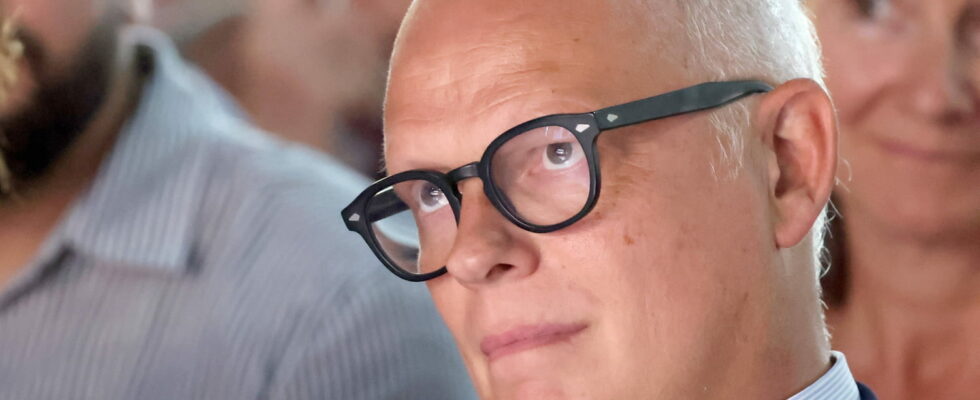Édouard Philippe wants to be the figurehead of a “central bloc” capable of governing after the legislative elections. On condition that the disappointing results of Horizons do not thwart his ambitions.
On Sunday evening, Édouard Philippe was the first prominent figure in the presidential camp to speak after the results of the first round of the legislative elections. For several weeks, the former Prime Minister has been at the forefront, not hesitating to distance himself from the line ofEmmanuel MacronHowever, the result of his party in the legislative elections is a blow to its legitimacy and its post-Macron ambitions: Horizons is not even sure of being able to recompose a parliamentary group after July 7.
Less than 50 candidates in the second round
In the old Assembly, the Horizons group had 30 deputies and one related party. There were 82 candidates from Édouard Philippe’s party running in the first round of the 2024 legislative elections. After Sunday’s results, only 50 qualified for the second round. Several have already indicated that they were withdrawing, in accordance with the instructions given by the presidential coalition in the three-way races to block the RN. However, even before these withdrawals, the projections by Ipsos Talan for France 2 gave Horizons between 4 and 10 seats at the end of the second round. The rule in the Assembly is that a group must have at least 15 members.
Édouard Philippe’s supporters are therefore not sure they will be able to carry any weight in the new chamber. This would be a major blow for the mayor of Le Havre, who has his sights set on the 2027 presidential election and the succession of Emmanuel Macron. Aware that the head of state provoked anger by dissolving the National Assembly, his former Prime Minister did not hesitate to send him a few barbs during the campaign: “It was the President of the Republic who killed the presidential majority,” he recalled on June 21 on TF1. “He dissolved it. It wasn’t me who left, it wasn’t rebels who would have annoyed him,” he insisted. A way of absolving himself of any responsibility for this controversial decision by the Élysée. And of cushioning, if possible, the rout predicted for the Macronists on July 7.
Building in the “central space”
Very quickly, Édouard Philippe became the champion of a coalition of the republican forces of the center. “To those who are outside the majority, we must say: let’s build a project together in the interest of the country,” he declared on RTL shortly after the dissolution, saying he was ready to work “with all the political forces within the central bloc.” “There are in the central space, from the conservative right to the social democratic left, a very large number of French people who want to build an alternative, who want to constitute a new parliamentary majority that is more stable, more solid, more open too,” he maintained on June 27, during a meeting in Montpellier.
In his post-results speech on Sunday evening, Édouard Philippe did not fail to clarify the limits of the democratic bloc as he sees it: “No votes should be cast for the RN candidates, nor for those of LFI,” he urged. An instruction even more uncompromising with the rebels than that of Prime Minister Gabriel Attal. The former head of government continues to draw his own line, with the day after the elections and the possibility of a coalition government already in mind. Enough to make him dream of a return to Matignon?
